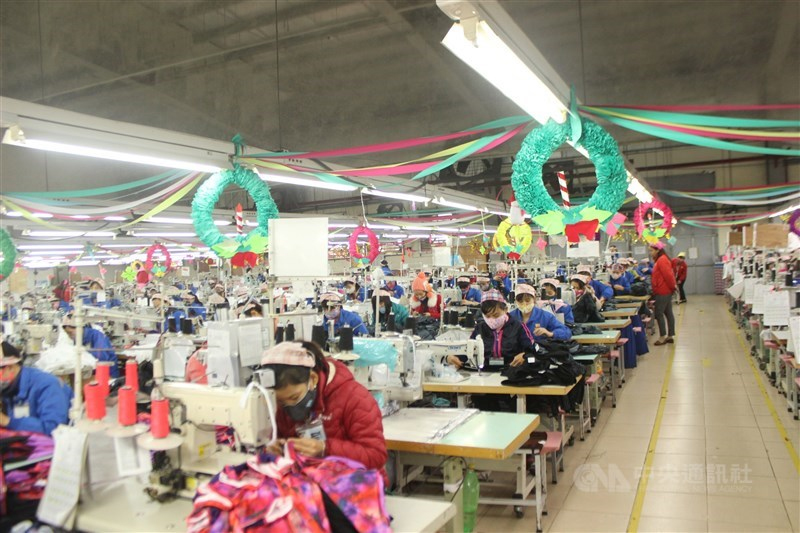➡️ Taiwanese textile and furniture companies with production hubs in Southeast Asia brace for major disruptions as U.S. President Donald Trump’s new reciprocal tariffs take effect.
📰 In-Depth Coverage
As the clock ticks down to April 9 — the date when U.S. President Donald Trump’s newly announced “reciprocal tariffs” come into force — Taiwanese manufacturers with substantial operations in Southeast Asia are voicing mounting concerns about financial fallout, supply chain dislocation, and long-term viability in the American market.
The textile and furniture sectors are among the most exposed, with major players like Eclat Textile Co., Makalot Industrial Co., Pou Chen Corp., Shane Global Holding Inc., and Nien Made Enterprise Co. sounding alarm bells despite prior efforts to diversify production bases beyond Taiwan and China.
🎯 What Are Trump’s Reciprocal Tariffs?
On March 31, Trump unveiled sweeping import duties ranging from 10% to over 40% on goods from dozens of countries — citing “unfair trade balances” and accusing foreign governments of currency manipulation and protectionism. These tariffs represent a stark escalation in global trade tensions, affecting both U.S. rivals and long-standing trade partners alike.
Key Tariff Rates Announced:
- Taiwan – 32%
- Vietnam – 46%
- Cambodia – 49%
- Indonesia – 32%
- China – 34%
- Thailand – 36%
While some goods like semiconductors and pharmaceuticals are exempt, industries such as textiles, furniture, auto parts, and electronics are heavily impacted.
🏭 Taiwan’s Industrial Exposure in Southeast Asia
Many Taiwanese firms shifted production to Southeast Asia over the past decade to hedge against geopolitical tensions and reduce labor costs. But this strategy has now become a double-edged sword.
📌 Eclat Textile Co.:
- 60% of sales come from U.S.
- Production: 60% Vietnam, 27% Indonesia, 10% Cambodia.
- Concern: Despite diversification, all facilities are in high-tariff countries.
- Strategy: Boost production efficiency, deepen client partnerships, no plans to manufacture in the U.S. due to labor and supply chain constraints.
📌 Makalot Industrial Co.:
- 70% of revenue comes from U.S.
- Production: 41% Indonesia, 37% Vietnam, 14% Cambodia.
- Strategy: Immediate discussions with international clients to share tariff burden.
📌 Pou Chen Corp.:
- Key supplier to Nike, Adidas, New Balance.
- Production: 53% Indonesia, 30%+ Vietnam.
- Strategy: Negotiating with clients to manage pricing and supply impacts.
📌 Shane Global & Nien Made Enterprise:
- Production base: 64–80% in China and Cambodia.
- Risk: High direct exposure to dual high-tariff regions.
🔄 Government Response
In response, Taiwan’s National Development Council (NDC) has pledged support for companies looking to shift operations back to Taiwan. The council plans to:
- Improve local infrastructure
- Offer incentives for domestic manufacturing
- Provide R&D funding for high-value production
NDC Minister Liu Chin-ching said the move is part of a long-term strategy to strengthen Taiwan’s global competitiveness and reduce overdependence on Southeast Asian labor.
🧠 Expert Analysis & Commentary
Trade analysts warn that these tariffs may have a chilling effect on investment strategies across Asia. Companies are now reconsidering decades of globalization built on cost-optimization and labor outsourcing.
“Global firms may need to restructure their entire supply chains, not just relocate factories,” said economist Dr. Lee Yu-fan from the Taiwan Institute of Economic Research. “This is not just a tariff issue — it’s about the cost of uncertainty.”
Moreover, companies in industries like textiles, which are labor-intensive and have razor-thin margins, face more risk than capital-heavy or tech-based firms like semiconductor manufacturers.
❓ FAQs
Why are Taiwanese companies affected by U.S. tariffs if their factories are in Southeast Asia?
The U.S. tariffs target country of origin, not company nationality. So, even if a Taiwanese company manufactures in Vietnam or Cambodia, those goods are treated based on their production location.
Will Taiwanese companies shift production back to Taiwan?
Some may explore this, but Taiwan’s higher labor costs and workforce constraints make it difficult, especially for labor-intensive sectors.
Are there exemptions to these tariffs?
Yes. Key strategic sectors like semiconductors, copper, and pharmaceuticals are exempt. Most consumer goods, however, are not.
When will these tariffs take effect?
Most tariffs begin on April 9, while specific categories like auto parts will roll out by May 3.
What can consumers expect?
Potential price hikes for imported goods such as clothing, furniture, and footwear, especially in the U.S. market.


